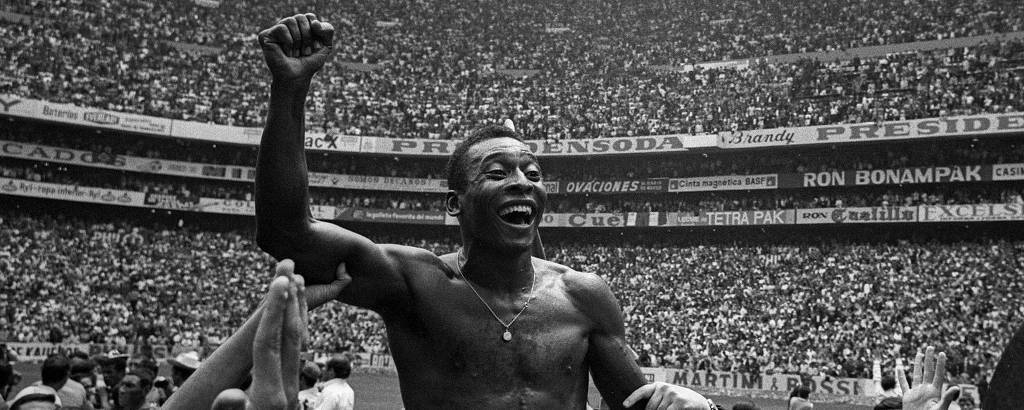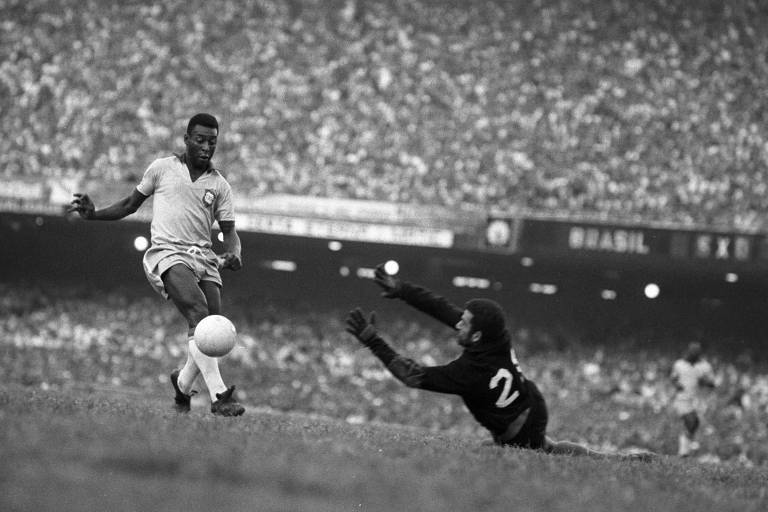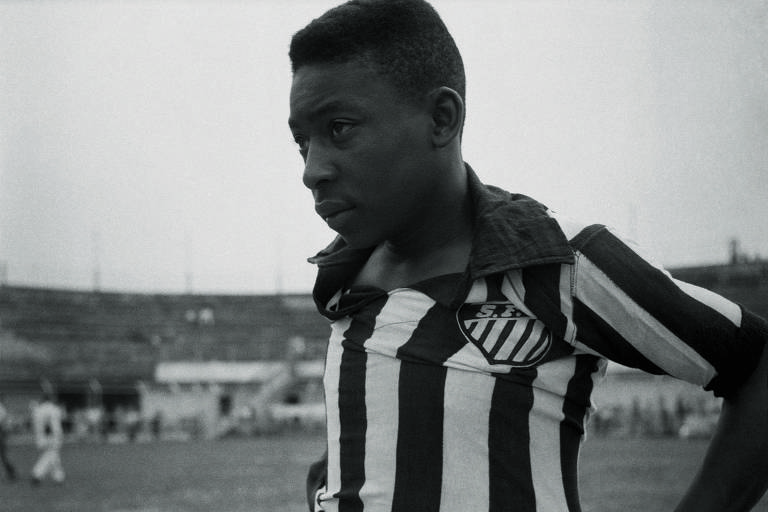At the age of 82, Edson Arantes do Nascimento has died. A man just like any other, with qualities and flaws. In this case, more qualities than flaws, although these have prevented him from being an even more influential citizen than he was. Interestingly, Edson talked of himself in the third person.
And it is said that Pelé, the best football player of all time, died today too, at the age of 82. An undisputed title, at least for those sensible ones who saw football long before and long after the athlete began to wrap up, between 1956 and 1977 , his splendid career of 1,281 goals, five world titles— two for Santos FC and three for the Brazilian national team. Interestingly, Pelé talked of himself in the third person.
But the world —starting with the French press—, all his life called him the King: the King Pelé. It is true that one day the English newspaper "The Sunday Times" went even further by asking, and answering: "How do you spell Pelé? With the letters G-O-D".
And it is this man, also elected "Athlete of the Century" in 1980 by the French newspaper "L'Équipe", who will be treated and honored here, although there are no words in any language in the world that can express his achievements and the enchantment that he awakened around the planet in his craft of playing football like no one else.
Nor is it the case of saying that there is an B.P. (before Pelé) and an A.P. (after Pelé) football, because football and Pelé have, in fact, become synonymous. Never before on this planet has a single person gathered all the fundamentals of a game like he did, not by chance the most popular game of all.
Pelé kicked magnificently with both feet, headed the ball with his eyes open, scored goals like no one else, gave passes that surprised even his teammates, landed the ball on his chest as if he were cradling it like a baby in his lap, and even a good goalkeeper he was capable of being. It was the murderous instinct, imprinted in a look that frightened his markers, as some of them had the guts to confess.
And he was never Mr. Nice guy. Religious as he was, instead of turning the other cheek when he was beaten, he would give an even more accurate kick, an imperceptible elbow, a definitive soled. And he played. He played like… a god. Yes, the English newspaper was right, as was the French one. As a boy, still at the age of 17, during the World Cup in Sweden, he was simply the top scorer of the Brazilian team, with six goals.
And these goals, each one more important than the other. Suffice it to say that he scored the only goal in the quarter-final against Wales, three out of five ones against France in the semi-final and two out of five against Sweden in the final.
As if that wasn't enough to simply play heavenly, Pelé always achieved very concrete results on the pitch. Two months before turning 22, for example, he had already scored 500 goals, a feat that Romário only achieved at 31. Pelé had, at the time, only six years as a professional player. At 29, he scored the thousandth, something no one has ever done with a real football scorecard.
In the Paulista Championship, the player was top scorer 11 times, nine consecutively, with marks such as having scored 58 goals at the State Championship by 1958, one goal for each year, probably in an unconscious tribute to the season of winning the first World Cup for Brazilian football. Not satisfied, in just one year, in 1961, Pelé scored 111 goals.
And each one more beautiful than the other, with the right foot, left one, head, chest, belly, cart, fish, bicycle, free kick, penalty, up close, by far, from far away, everything except from midfield because, if he had, someone would have said he was perfect, and perfect, as you know, only HIM. Although there were people who called him only that, calling him as HIM—and it has to be said that it was no exaggeration at all.
No wonder writer Carlos Drummond de Andrade (1902-1987) once wrote that "it is not difficult to score a thousand goals like Pelé; it is difficult to score one goal like Pelé ". Plus, even the goals he lost were the most beautiful lost goals of all time.
Pelé was so exceptional that he was able to have simple human features. Like confessing that his legs trembled before hitting the penalty that resulted in the thousandth goal, in 1969, at Maracanã —and it could only have been a penalty, for the world had to stop and watch.
That he cried nervously, hidden, before playing his last World Cup match, in 1970, in Mexico, against Italy, when he scored the first goal of the victory by 4-1 —the one that earned him the tri-championship and definite ownership of the Jules Rimet Cup.
Truth be told, there is no obituary that could do justice to all the major feats of King Pelé, certainly the best known Brazilian person in these 522 years of Brazilian History and one of the best known names in the history of mankind, who rivaled with Jesus and won against brands like Coca-Cola and the Beatles.
Fortunately, no one will be able to say that it is a legend that he stopped wars –though there are some who try to contest it–, entered the United States without a passport, had popes interrupt hearings to receive him or that he expelled a Referee from the field. Because everything is properly documented.
How unfortunate it is that, at this point, there is no other way but to inform those who came here today, that no, it is not true that Pelé has died. The one who died was Edson.
Translated by Cassy Dias


